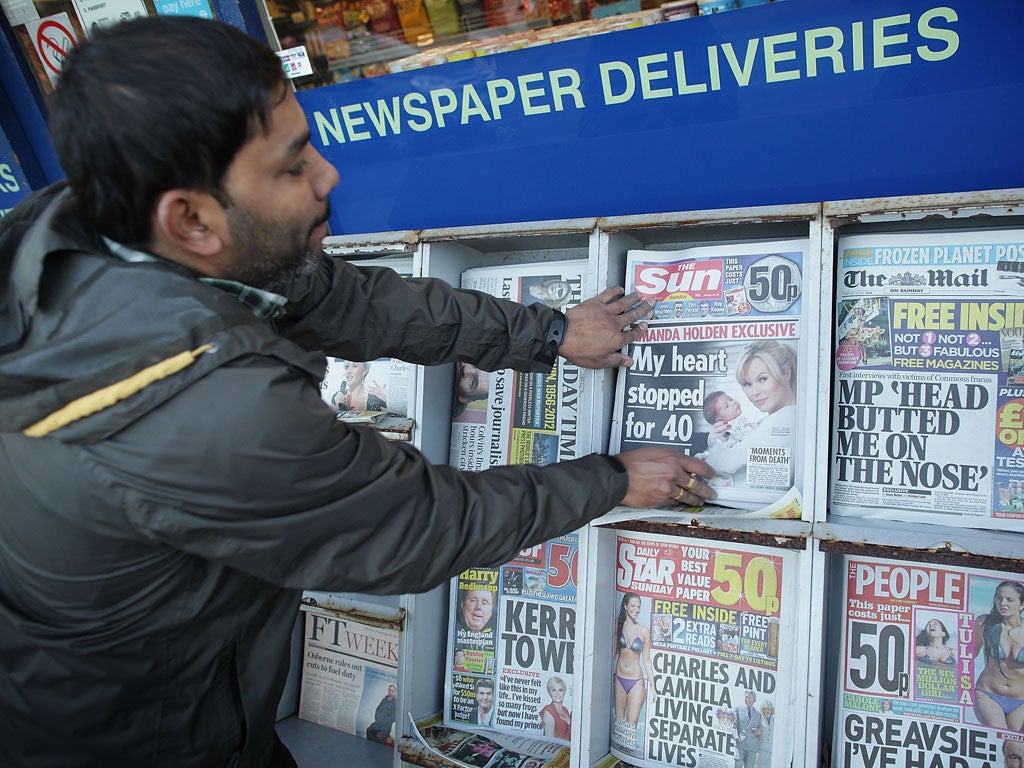Labour raises the stakes over Leveson
If the inquiry recommends a law to regulate the press, a Miliband government would introduce it

Your support helps us to tell the story
From reproductive rights to climate change to Big Tech, The Independent is on the ground when the story is developing. Whether it's investigating the financials of Elon Musk's pro-Trump PAC or producing our latest documentary, 'The A Word', which shines a light on the American women fighting for reproductive rights, we know how important it is to parse out the facts from the messaging.
At such a critical moment in US history, we need reporters on the ground. Your donation allows us to keep sending journalists to speak to both sides of the story.
The Independent is trusted by Americans across the entire political spectrum. And unlike many other quality news outlets, we choose not to lock Americans out of our reporting and analysis with paywalls. We believe quality journalism should be available to everyone, paid for by those who can afford it.
Your support makes all the difference.A Labour government will implement statutory regulation of the press if Lord Justice Leveson recommends it, party sources have revealed, in response to signs that the coalition government will stop short of backing the proposals.
David Cameron is understood to be wary of any recommendation by Leveson for full statutory regulation after the phone hacking scandal, a sentiment echoed last week by John Whittingdale, the chairman of the culture select committee, who warned the move would prove to be "dangerous".
But Labour sources said that a government under Ed Miliband, who led calls for an inquiry into the phone hacking scandal, would introduce regulation if the party won the next election, despite warnings that such a policy would restrict freedom of the press.
Lord Justice Leveson is expected to recommend tougher restrictions on the media when he publishes his report, which is due in November. There is speculation that the judge will have to delay his report because he will want to examine two big news stories involving young royals that have broken in the past month: pictures of a naked Prince Harry in Las Vegas, which were published in The Sun, and the decision by a French magazine to print photographs of the Duchess of Cambridge topless.
The Prime Minister has also cast doubt publicly on full-blown statutory regulation, favouring a watchdog that would be independent of the press but without legal powers. Michael Gove, the Secretary of State for Education and a former Times journalist, has also warned against statutory regulation.
Last week Mr Whittingdale criticised the judge for casting his remit too widely and allowing witnesses to settle scores against newspapers. But a Labour source said last night: "If Leveson recommends statutory regulation and this is rejected by the coalition, then we will implement it in government. This is an important moment for the rights of individuals against the rights of the press. We are not against freedom of the press, but the Leveson inquiry, which Ed called for, has done a thorough job in investigating media ethics, and we will support what he says."
Mr Whittingdale, Conservative MP for Maldon, told Radio 4 last week: "Personally, I've always been of the view that statutory regulation is something we must avoid if we possibly can, because it's a very dangerous road to go down.
"It appears that Leveson is going to make recommendations on the regulation of the press based on many of the stories he has heard, when actually the big issue that has brought about all of this is not going to be examined.
"There will be great pressure on the Prime Minister to immediately accept the recommendations made by Leveson. I hope he won't, whatever it is. I hope he thinks hard about this. Any politician will want to think long and hard before going down the road of legislating over the press. It is in my view a very dangerous thing to do; it's a slippery slope."
After taking evidence from 650 witnesses in person and in writing, Lord Justice Leveson completed his hearings in July. The inquiry has already sent out so-called "Salmon letters", which warn participants if they are to be criticised.
Join our commenting forum
Join thought-provoking conversations, follow other Independent readers and see their replies
Comments